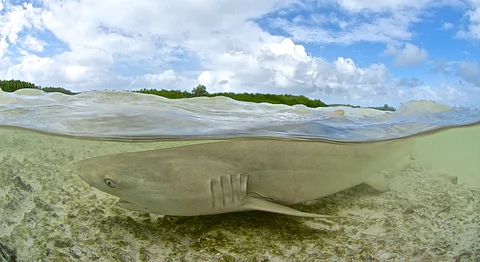

There were 47 ‘unprovoked’ attacks worldwide by shark species in 2024, four of which were fatal, according to a statement by the Florida Museum of Natural History’s International Shark Attack File (ISAF).
“2024 was an exceptionally calm year for shark bites. Worldwide, there were only 47 unprovoked attacks, down 22 from the previous year and well below the 10-year average of 70,” the statement noted.
The ISAF describes an ‘unprovoked attack’ as an incident “in which a person does not initiate contact with a shark”. Incidents where a person “intentionally or unintentionally initiates contact, including spearfishing and releasing sharks from nets or hooks” are not included in the report.
The United States dominated the tally, with 28 confirmed cases, slightly lower than the 36 incidents recorded in 2023. These 28 cases represent 60 per cent of the global total.
Within the US, Florida topped the list like most years, with its 14 cases representing 50 per cent of the US total and 30 per cent of unprovoked attacks worldwide.
“This is lower than Florida’s most recent five-year annual average of 19 incidents. Volusia County had the most shark bites (8), representing 57% of the state’s total. This is in line with the five-year annual average of 9 incidents in the area. Of the six remaining bites, two were in Walton County, and one each occurred in the Martin, Brevard, St. Johns and Indian River counties,” the statement noted.
There were four bites in Hawaii last year, one of which was fatal. “This represents a slight decrease from the average, but shark bites in Hawaii vary considerably from year to year,” according to the statement.
California recorded three unprovoked bites, Texas recorded four, North Carolina one and South Carolina two.
The United States was followed by Australia, with 9 unprovoked bites, none of which were fatal.
“Australia‘s total of 9 unprovoked incidents is lower than the five-year annual average of 15 incidents for the region. Five of these occurred in western Australia, one bite occurred in South Australia, one bite was recorded for Queensland and two bites were recorded for New South Wales,” as per the statement.
No bites were recorded for Tasmania over the year.
“Egypt reported one unprovoked bite that resulted in a fatality. The Maldives reported one fatal unprovoked bite for 2024. One fatal bite occurred off of the disputed territory of Western Sahara in the open ocean. Turks and Caicos Islands, French Polynesia, Mozambique, India, Thailand, Trinidad and Tobago, and Belize each reported single non-fatal incidents for 2024,” as per the statement.
In India, the attack last February 14 on Vikas Suresh Gowari, a 34-year-old fisherman from the village of Manor-Dongripada in Maharashtra’s Palghar district made it to the list.
The attack was carried out by a bull shark (Carcharhinus leucas). Indeed, most of the attacks on the list were carried out by bull sharks, as per the statement.
“Of the species that could be identified from witness accounts, video footage of the attacks and/or the pattern of lacerations left by their teeth, bull sharks were the main culprit of last year’s bites. Unlike most other shark species, bull sharks are tolerant of freshwater environments and have been found in rivers hundreds of miles from the sea. Pregnant females often navigate upstream, where there are fewer predators that pose a danger to their young,” it said.
The statement added that the number of shark attacks usually fluctuate every year: “Annual fluctuations in shark-human interactions are always expected. While the number of fatalities in 2024 was lower than in 2023, this variation is still within the normal, recorded range of global fatalities. The 2023 uptick in fatalities due to white sharks was not observed in 2024, reflecting how stochastic the variation of fatalities can be from year-to-year.”